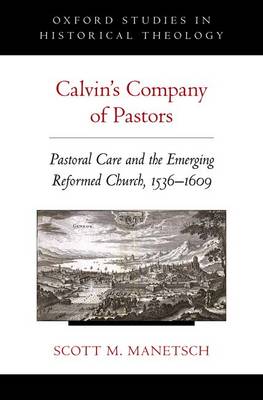I remember the excitement when I learned I could study with Scott Manetsch in a PhD seminar on “Pastoral Theology in the Reformation Era.” The professor of church history and the history of Christian thought at Trinity Evangelical Divinity School has invested years studying in careful detail the church records of Reformation Geneva. But we also planned to study the work of Johannes Oecolampadius in Basel, Richard Baxter’s still-influential book The Reformed Pastor, William Perkins on The Art of Prophesying, and, of course, the writing and practice of Martin Luther. This is why you enroll in seminary!
 But not everyone was so excited for me. An adviser responded to my enthusiasm and said, “What do you think you can learn for today from the Reformation? You’d be better off studying modern techniques for church planting and growth.” To this teacher, the Reformation Era is so distant in space and time from our own that we’re wasting our breath discussing what lessons we can learn for pastoral ministry today by reading about Calvin and his Company of Pastors.
But not everyone was so excited for me. An adviser responded to my enthusiasm and said, “What do you think you can learn for today from the Reformation? You’d be better off studying modern techniques for church planting and growth.” To this teacher, the Reformation Era is so distant in space and time from our own that we’re wasting our breath discussing what lessons we can learn for pastoral ministry today by reading about Calvin and his Company of Pastors.
I’m grateful that Manetsch disagrees and has written a groundbreaking new book in the Oxford Studies in Historical Theology series called Calvin’s Company of Pastors: Pastoral Care and the Emerging Reformed Church, 1536-1609. He joined me to explore contemporary implications of his work. In more than 30 minutes we discussed a day in the life of Calvin, the need to avoid idolizing our spiritual heroes, the benefits of collegial ministry, the occasions when other pastors challenged Calvin, the courage required to endure in ministry, and more. Manetsch also identified the one pastoral challenge that frustrated Calvin more than any other and shared what insights the Genevan reformer might offer American ministers today. To give you a sense for Manetsch’s conclusions, consider this quote about the Company of Pastors from the end of his book:
Though this collegial model of ministry did not foster bold innovation, nor allow for strong dissent, it did create a pastoral culture in Geneva where ministers depended on one another, learned from one another, were subject to one another, and forgave one another. Contemporary Protestantism, with its infatuation for robust individualism, celebrity preachers, and ministry empires, has much to learn from the example of Geneva’s church. (305)

































